I’m a regular at my neighborhood café, so every morning Jinny the barista greets me with a smile and a hot ‘Skinny Cappuccino’. She knows exactly what I am looking for. And she knows much the same for a couple of dozen other regulars. It’s called personalized service. It makes me feel good, and I keep coming back. So think about the last time you opened your web browser and went to Amazon.com to buy a book. You may have had one title in mind, but you came across a few more recommendations from Amazon, all suited to your taste. Again, it’s called personalized service and it gets your attention. Amazon is doing the same thing Jinny does, but for 76.2 million users per month.
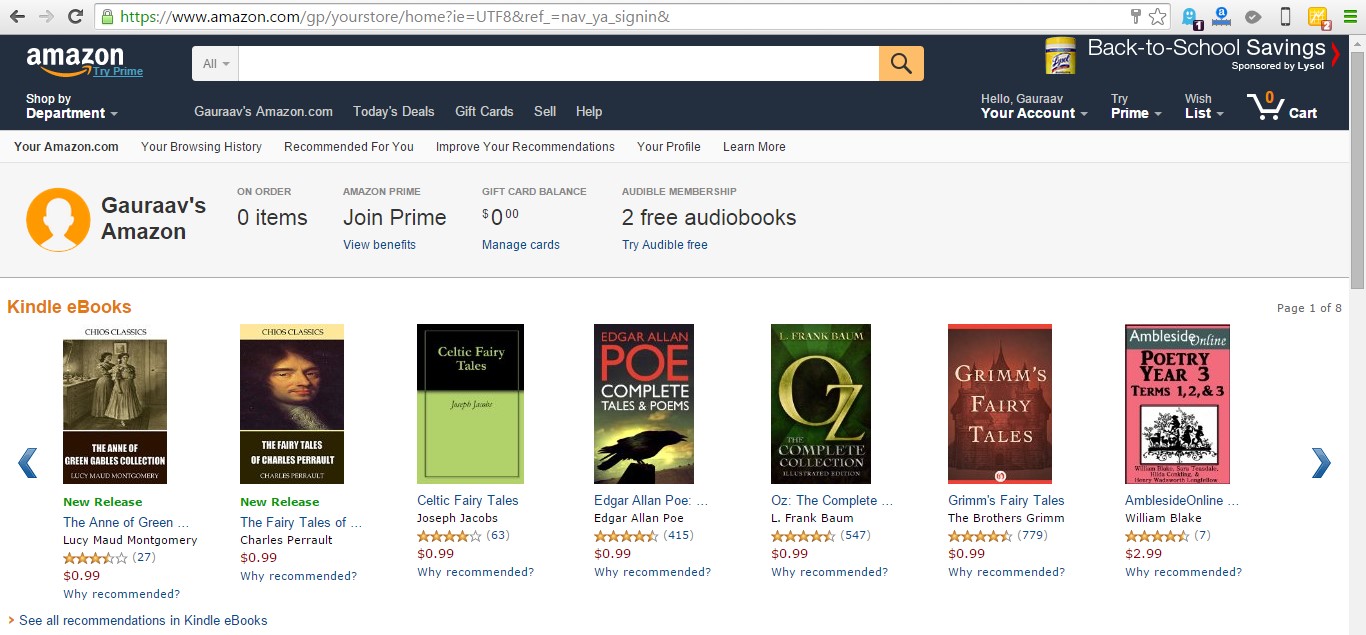
Motorola could have rolled out the Moto X customization experience – or personalization experience – in a conventional way, but instead published the world’s first interactive print ad in WIRED.
How to attract a millennial audience? Try using bright shiny things with many, many moving parts. Forever 21 and Breakfast teamed up to bring Instagram pictures to life using a giant, digitally synced adjustable billboard, a contraption that includes some 200,000 parts.
The machine renders versions of Instagram photos hashtagged ‘#F21ThreadScreen’ and cameras stream the process live at f21threadscreen.com—and send users auto-edited clips of their photos being rendered.
Pinterest, Twitter, Facebook and other social media networks suggest Friends, Posts and Interest Groups to ‘Pin’, ‘Tweet’, ‘Follow’ or ‘Post’, as the case may be. The vast volumes of data gathered in the process epitomizes what’s personal.
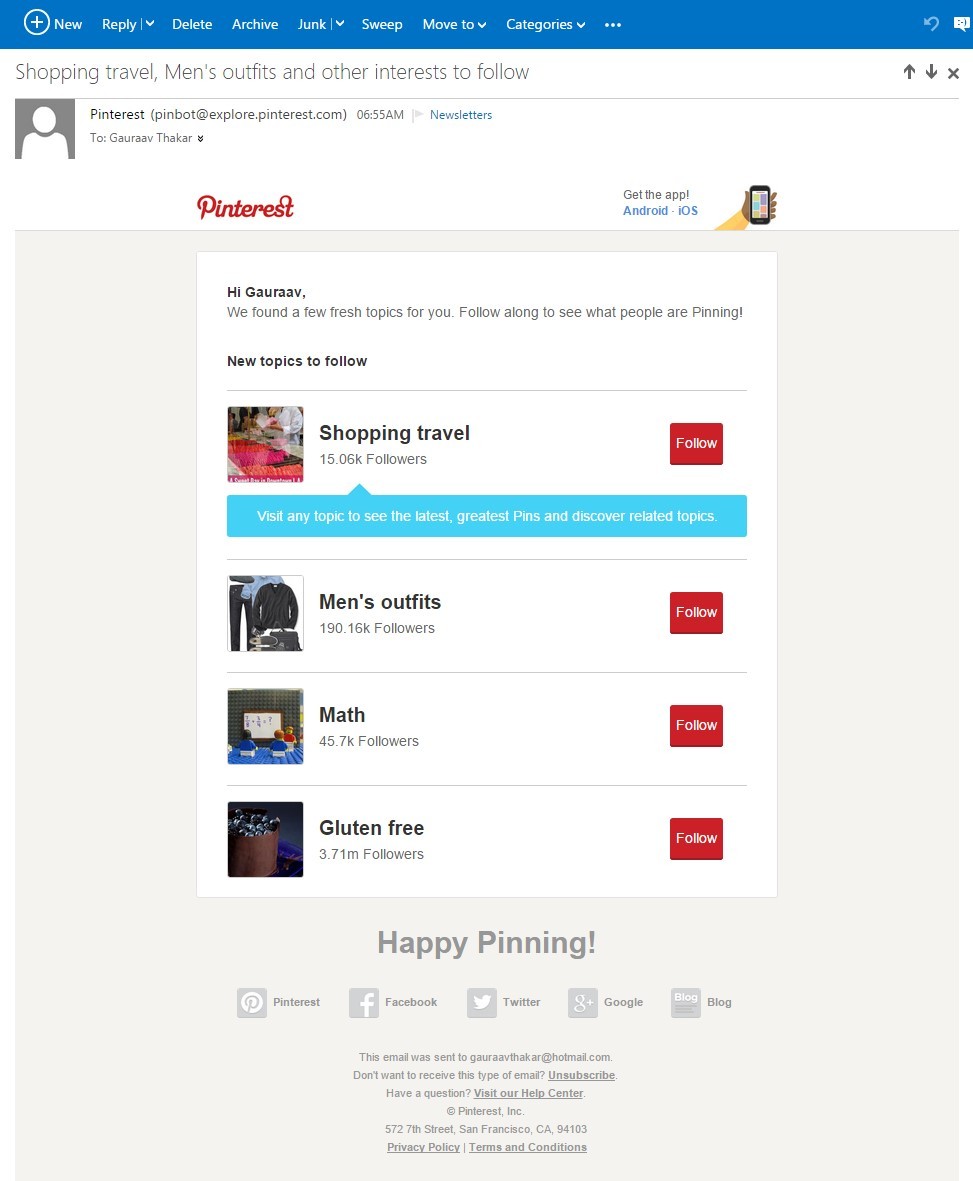
Amazon USA offers 200 million products in 35 categories. How to find what you want? Amazon simplifies the process with website personalization. By analyzing your previous behavior Amazon promotes products and makes informed suggestions according to what it “thinks” you may want.
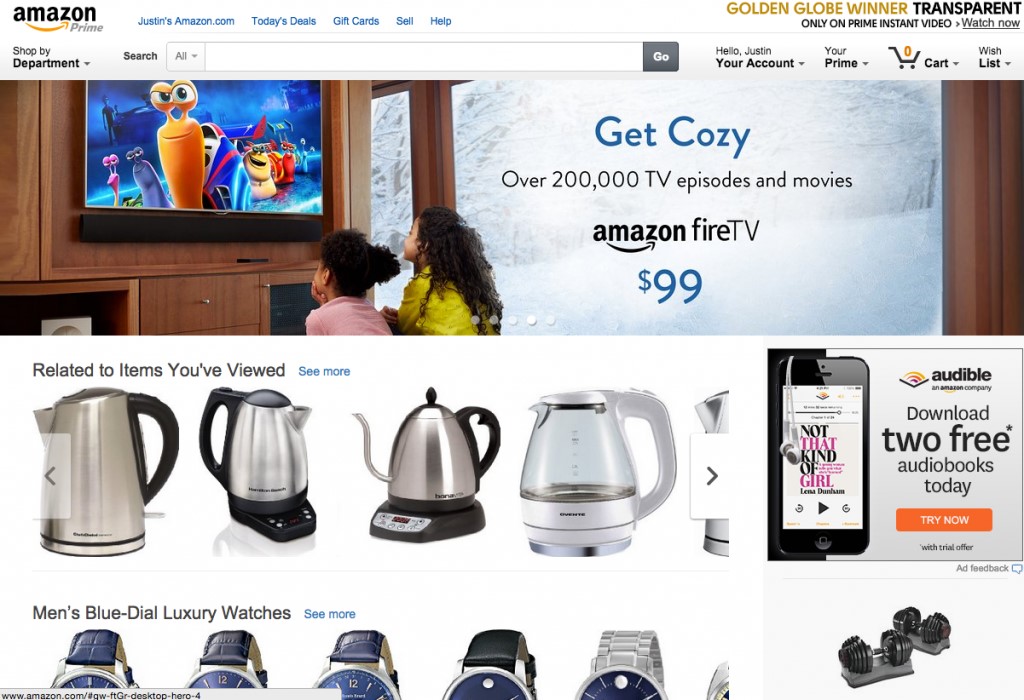
We’re all on Facebook all the time. It gives us a personalized newsfeed of what’s happening with our friends and groups. At the same time we are generating data that gives shape and meaning to out digital personality. LinkedIn does much the same while giving us personalized updates from our professional network.
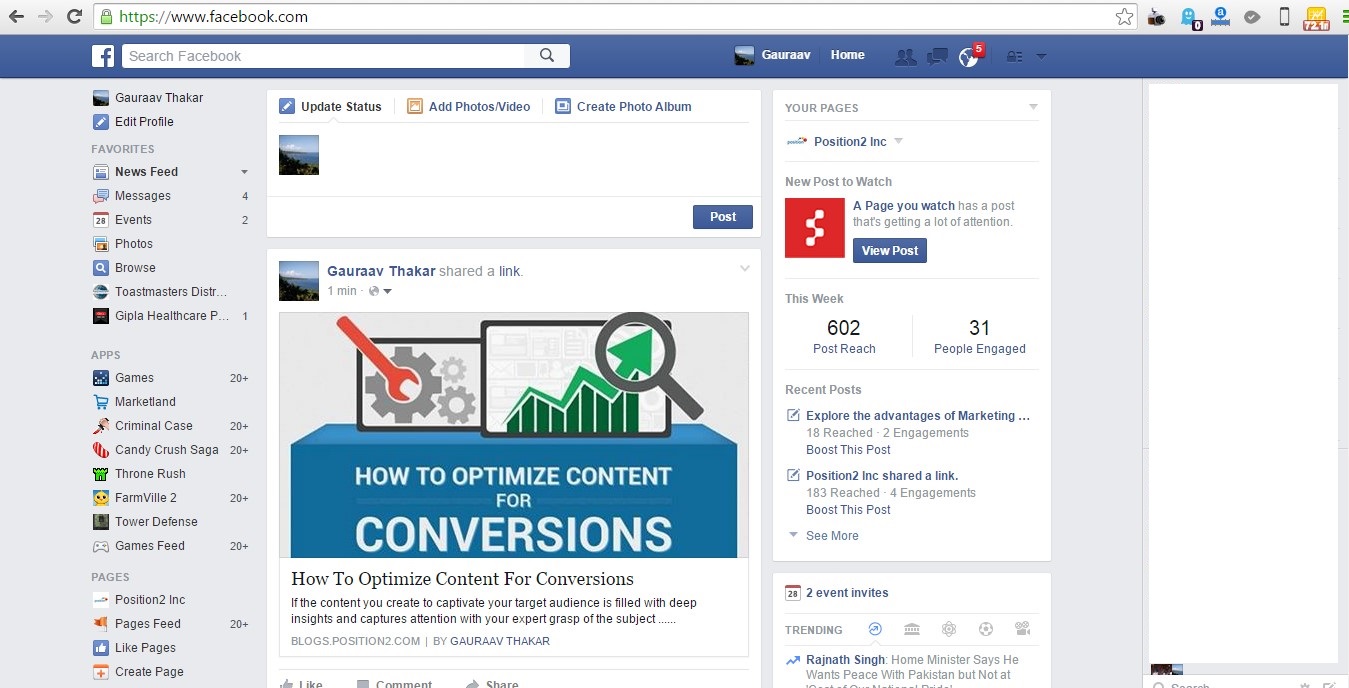
Here’s an example of an ad for a motorcycle insurance company, ICICI Lombard. I had recently been on their site, but this is the Tech Cocktail website. As you can see I have been re-targeted with an ad for ICICI Lombard’s policy.
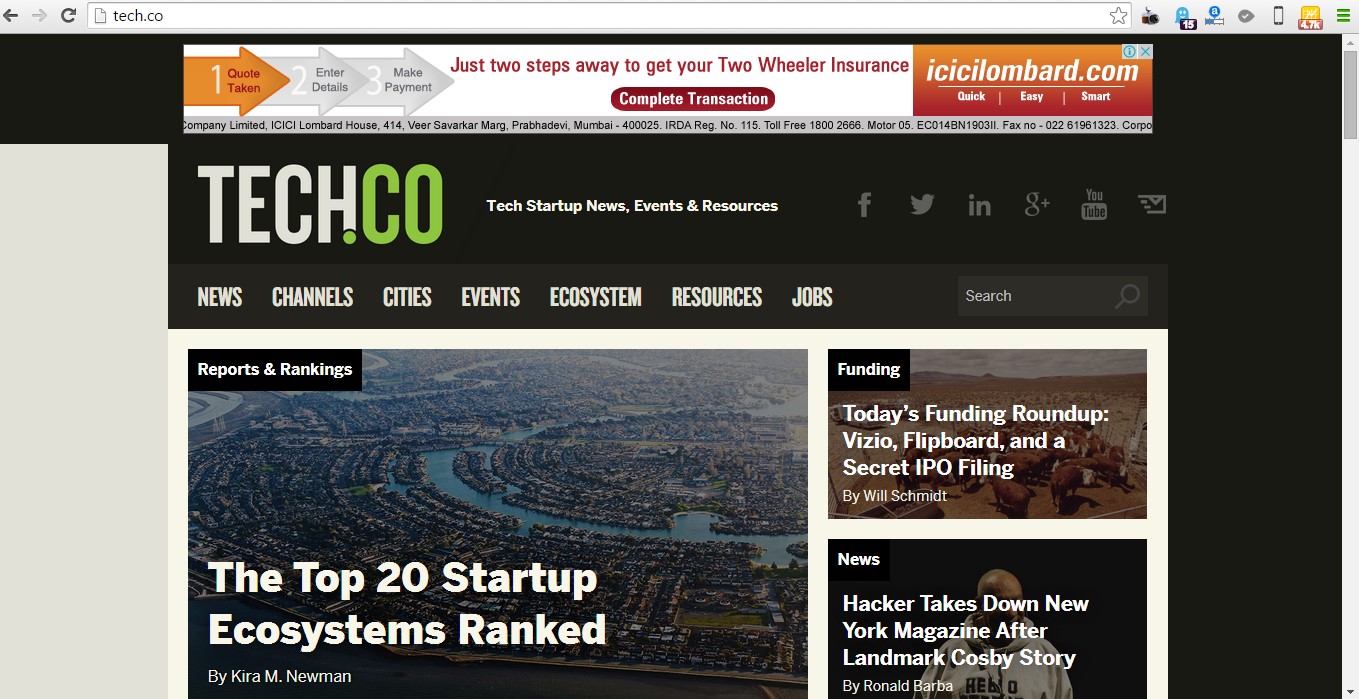
Given all that, you would think that personalization and marketing would be a natural fit. But it has yet to work out that way.
Personalized marketing is a sadly underutilized strategy even though it’s highly effective.
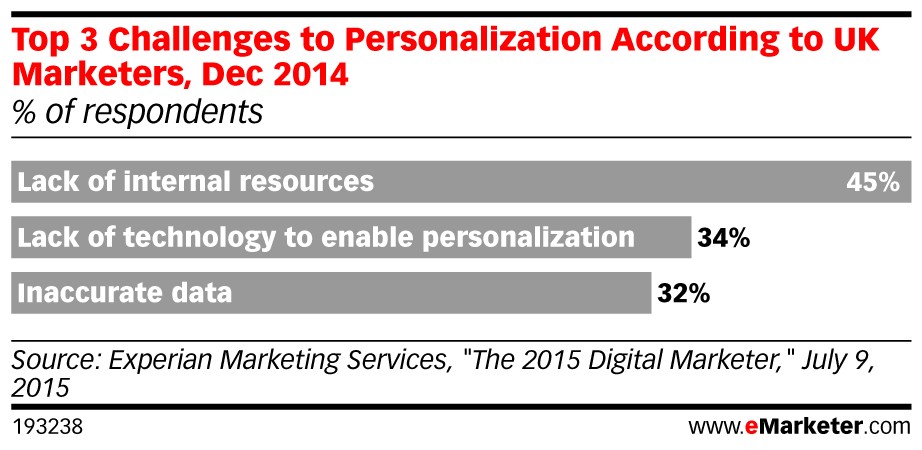
Mobile, of course, has brought with it a greater push for personalization and marketers are responding, particularly with real-time efforts. April 2015 polling by Researchscape for Evergage found that 58% of marketers worldwide used real-time personalization—defined as data-driven personalization completed in less than 1 second. Among the 42% not using it, nearly eight in 10 intended to do so within the next year.
Each geography, market and target audience is different. Be mindful that what resonates in one market might not be received the same way in another.
Think globally but act locally. Campaign messages and content assets must be translated and localized. Message tone, brand positioning and even colours (oops, I mean colors) must be appropriate to the language and culture of the market.
To execute large scale personalization identify the relevant data. A combination of explicit (demographic and/or firmagraphic) and implicit (activity-based) data sourced from multiple systems may need to be reconciled or integrated.
Once the relevant data for personalization is identified, it needs to be synthesized in the primary marketing database and analyzed for hygiene and completeness. Complex personalization is executed through data-driven rules that cannot function at an impactful level without a high degree of standardization and completeness at the database field level.
Evaluate the marketing technologies needed to support the level of personalization that programs or tactics require. Marketing automation platforms (MAPs) contain features such as field merges and the ability to render modular content based on data-driven rules to produce email and landing page personalization at scale. Additionally, programmatic site retargeting, social and mobile retargeting, reverse-IP and cookie lookup, and third-party data vendors provide options for rendering a personalized experience based on explicit and implicit data points that can exist outside the marketing database. Web conversion optimization tools can execute rules-based personalization on an organization’s Web properties to engage and qualify site visitors with a more relevant browsing experience. Finally, automated contextual call guides for tele prospecting teams can deliver personalized interactions during the tele qualification phase of the marketing and sales process.
Make a culture of testing operational in any modern marketing organization. It’s critical. Don’t assume that personalization is making content, assets, and messaging resonate better with audience microsegments. Personalization initiatives should be tempered with an organization’s ability to plan and conduct meaningful testing to verify personalization’s contribution to a measurable increase in awareness, engagement and response.
What’s your favorite example of personalization that you use on a daily basis? Drop it in the comments. Would love to hear from you.